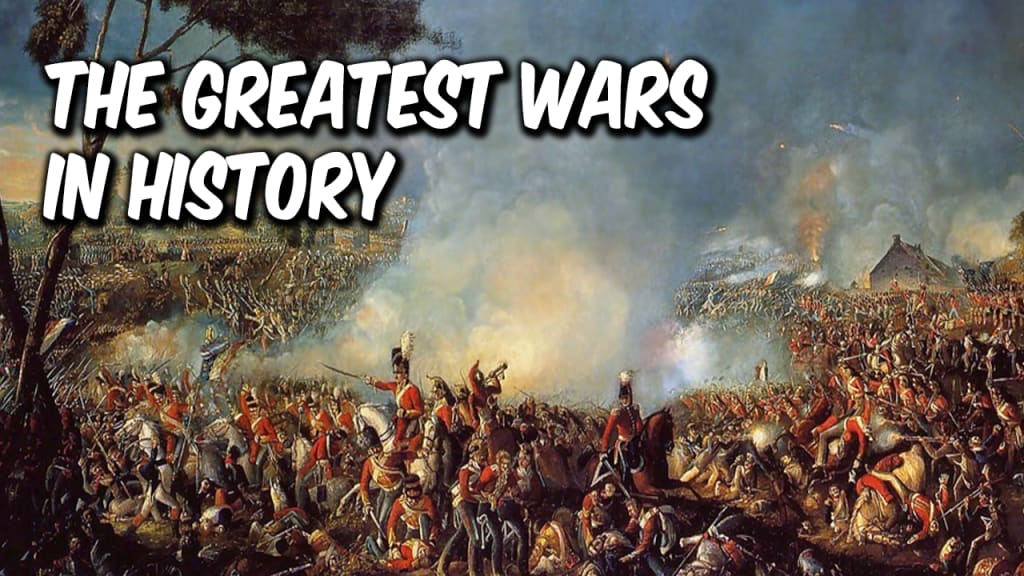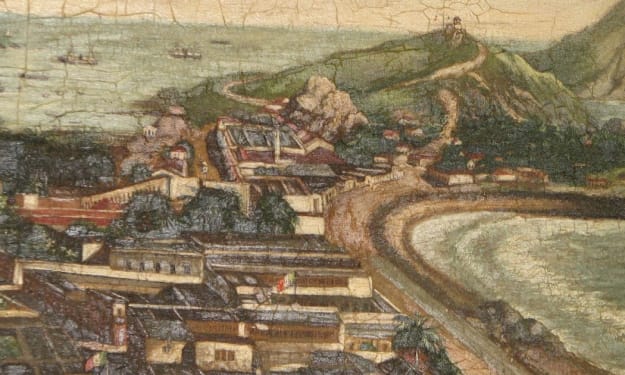Unveiling the Epics of Human Conflict: A Dive into History's Greatest Wars
DISCUSSING HUMANITIES GREATEST WARS

Introduction:
Wars, the epitome of human conflict, have shaped the course of history since time immemorial. From ancient battles fought with spears and shields to modern warfare employing cutting-edge technology, the annals of human civilization are replete with tales of valor, devastation, and conquest. In this essay, we embark on a journey through time to explore some of the greatest wars in human history, delving into their causes, consequences, and enduring legacies.
Ancient Wars:
The ancient world witnessed numerous conflicts that left indelible marks on the pages of history. Among them, the Greco-Persian Wars stand out as a pivotal clash between East and West. Spanning from 499 BCE to 449 BCE, these wars saw the mighty Persian Empire under King Darius and later his successor Xerxes, attempting to conquer the city-states of Greece. The valiant defense of Greek city-states, notably at the battles of Marathon, Thermopylae, and Salamis, thwarted Persian ambitions and preserved the autonomy of Greek civilization, laying the groundwork for the flourishing of Western culture and democracy.
Another notable conflict of antiquity is the Punic Wars, a series of three wars fought between Rome and Carthage from 264 BCE to 146 BCE. These wars were driven by a struggle for dominance in the Mediterranean region, with Rome ultimately emerging victorious and establishing itself as the preeminent power of the ancient world. The Punic Wars witnessed legendary figures such as Hannibal Barca, whose daring military tactics and crossing of the Alps with elephants are etched in history.
Medieval Conflicts:
The Middle Ages were characterized by feudalism, religious fervor, and incessant warfare. One of the defining conflicts of this era was the Hundred Years' War, a protracted struggle between the kingdoms of England and France from 1337 to 1453. Fueled by dynastic disputes and territorial ambitions, the Hundred Years' War saw iconic battles such as Agincourt and Joan of Arc's pivotal role in rallying the French forces. The war reshaped the geopolitical landscape of Europe, contributing to the decline of feudalism and the rise of centralized nation-states.
The Crusades represent another epochal clash of civilizations during the medieval period. Spanning from the 11th to the 13th century, the Crusades were a series of religious wars sanctioned by the Latin Church, aimed at reclaiming the Holy Land from Muslim control. These wars left a profound imprint on both Western and Eastern societies, fueling cultural exchange, economic expansion, and religious intolerance.
Early Modern Warfare:
The dawn of the modern era witnessed the emergence of nation-states and the advent of gunpowder, ushering in an era of unprecedented conflict and conquest. The Thirty Years' War, fought from 1618 to 1648, ravaged Central Europe in a complex web of religious, dynastic, and territorial disputes. The war's devastating impact on the population, economy, and political order of Europe underscored the destructive potential of modern warfare.
The Napoleonic Wars, waged by the French Emperor Napoleon Bonaparte from 1803 to 1815, represent another watershed moment in military history. Napoleon's audacious campaigns, from the sweeping conquests of Europe to the ill-fated invasion of Russia, reshaped the map of Europe and unleashed waves of nationalist fervor across the continent. The eventual defeat of Napoleon at the Battle of Waterloo marked the end of an era and set the stage for the Congress of Vienna and the restoration of conservative order in Europe.
World Wars and Beyond:
The 20th century witnessed two cataclysmic conflicts that engulfed the entire globe and redefined the nature of warfare. World War I, known as the Great War, erupted in 1914 and pitted the Allied Powers against the Central Powers in a brutal struggle for supremacy. The war's unprecedented scale, industrialized warfare, and staggering casualties shattered the optimism of the pre-war era and laid the groundwork for the subsequent upheavals of the 20th century.
World War II, the deadliest conflict in human history, erupted in 1939 with the invasion of Poland by Nazi Germany and raged on until 1945. The war saw the rise of totalitarian regimes, genocide on an unprecedented scale, and the emergence of nuclear weapons. The Allied victory over the Axis powers, marked by the Normandy landings and the defeat of Nazi Germany and Imperial Japan, reshaped the geopolitical landscape and paved the way for the Cold War era.
Conclusion:
Wars, as manifestations of human conflict, have left an indelible imprint on the annals of history, shaping the course of civilizations and defining the destiny of nations. From ancient battles fought with swords and spears to modern warfare waged with tanks and drones, the epic sagas of human conflict continue to captivate our imagination and challenge our understanding of the human condition. As we reflect on the greatest wars in human history, let us heed the lessons of the past and strive for a future of peace, reconciliation, and shared prosperity.
About the Creator
Okosisi Great
I am an Independent writer and student, I've always loved writing and i love to share that with others.





Comments
There are no comments for this story
Be the first to respond and start the conversation.